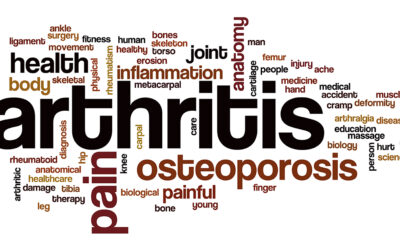Millions of people who live with the pain and stiffness of arthritis in their hands get steroid or hyaluronic acid injections directly into their finger joints in the hopes of feeling better.
Now, a new review shows that even though these injections are widely recommended in treatment guidelines, they don’t really work.
Joint injections to relieve the symptoms of hand osteoarthritis were no better than dummy (placebo) injections, the study found.
That’s not all current treatment recommendations for hand arthritis seem to get wrong, either. Most also call for topical pain relievers as the first-line therapy for hand osteoarthritis, but the evidence on those is iffy, said study author Dr. Anna Døssing, a rheumatology resident at the Parker Institute in Copenhagen, Denmark.
So, what does relieve the pain of hand arthritis?
“Oral nonsteroidal anti-inflammatory drugs [NSAIDs] and oral glucocorticoids effectively reduce pain in people with hand osteoarthritis,” Døssing said. Of these, glucocorticoids (steroid) pills were most effective, the study showed.
Oral NSAIDs also improved function and grip strength, and oral steroids improved function and people’s health-related quality of life, a measure that encompasses physical and mental health status. People who took either of these medications reported improvements in hand symptoms and their overall health.
For the study, Døssing and her colleagues reviewed 65 studies of close to 5,250 people with hand osteoarthritis. The studies looked at 29 types of treatment for the condition.
Injections were found to be ineffective, but most people in the study received injections for osteoarthritis in the base of their thumb. Hydroxychloroquine, an arthritis medication that affects the immune system, was also found to be ineffective for hand arthritis, and the effectiveness of topical creams and gels for pain wasn’t clear, the study showed.
The findings were published Sept. 28 in the journal RMD Open.
The article reveals a “surprising lack of effectiveness of intra-articular glucocorticoids, a widely employed and traditionally fundamental treatment for hand arthritis, specifically thumb-base arthritis,” said Dr. Daniel Polatsch, co-director of The New York Hand and Wrist Center of Lenox Hill Hospital and an associate professor in the department of orthopedic surgery at Zucker School of Medicine/Northwell in New York City.
“This discovery stands in stark contrast to the prevailing beliefs and experiences of most hand surgeons, myself included, in our clinical practice,” Polatsch said.
He said that treatment for hand arthritis should be individualized. “I consistently advocate for commencing treatment with the option that carries the lowest risk,” he said. “Short-term usage of oral NSAIDs or glucocorticoids is a reasonable approach.”
That said, long-term use of these medications can cause side effects. Prolonged use of NSAIDs has been linked to bleeding ulcers. Oral steroids, when taken for prolonged periods of time, can cause high blood pressure, weight gain, thinning skin and infections.
“My recommendation is to engage in a discussion about the different treatment options with your health care provider and formulate a plan together,” Polatsch advised.
It’s also a good idea to see a hand surgery specialist if symptoms persist.
“A hand surgery specialist … can thoroughly assess the full spectrum of alternatives, including medication, splinting, hand therapy, injections and, as a final resort, surgery,” Polatsch said.
More information
HealthDay has more on arthritis symptoms.
SOURCES: Anna Døssing, MD, rheumatology resident, Parker Institute, Copenhagen; Daniel Polatsch, MD, co-director, The New York Hand and Wrist Center of Lenox Hill Hospital, and associate professor, department, orthopedic surgery, Zucker School of Medicine/Northwell, New York City; RMD Open, Sept. 28, 2023



